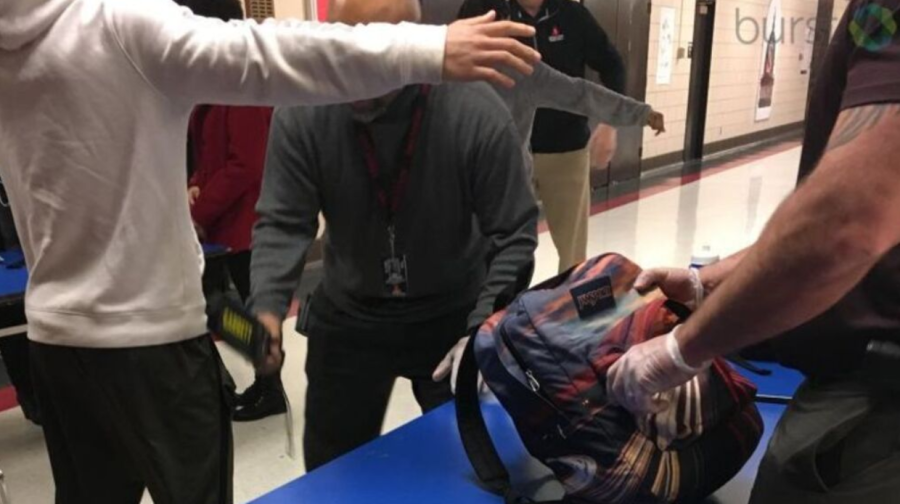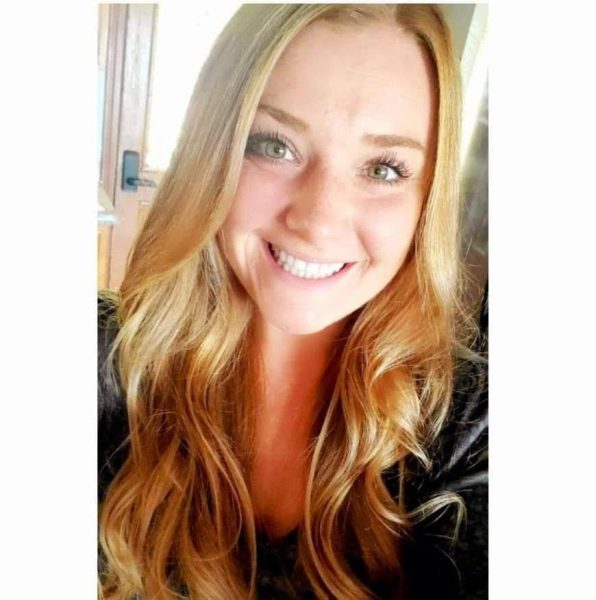How far is too far?
Student being searched at an Illinois High School
When was the last time you walked into a high school bathroom and saw a kid using a vape or illegal substance? If you attend Triton High School, your answer is probably recently. Across the country, students are using the bathrooms as their safe place to vape, smoke, or drink during the day. But what would happen if a teacher or staff member walked in? Would they be allowed to search the student or not?
“It’s getting to a point where I feel like I’m the one that is using the bathroom incorrectly,” said Triton Senior Olivia Bateman. “I see girls vaping in the bathroom more often than I see people using it properly.” It has become a common theme for students to vape in the school bathrooms, and most people get away with it. Students will hog stalls from people who actually need to use the bathroom, and occasionally they get caught by staff members, students and staff say. If teachers see any suspicious behavior they are allowed to search the students.
This is quite similar to the case of the landmark Supreme Court case, New Jersey vs T.L.O (1985), where a 14-year-old student at Piscataway High school was caught smoking a cigarette in the bathroom. The principal asked to look in her purse and found cigarettes, rolling paper, and marijuana. She went to trial after admitting she sold drugs at school, but she appealed her conviction by claiming the search on her purse violated her Fourth Amendment right protecting against “unreasonable searches and seizures”.
Students who are caught red-handed might be tempted to say “I don’t allow you to search me”. Though they have the right to say no, if a teacher has reasonable suspicion then they also have the right to search you.
“It is very common for students to get searched. We just need cause or reason”, said Triton’s Assistant Principal Scott Brennan. “I could be in a bathroom right now with five guys under smoke and I can search them”. The smoke cloud is reasonable therefore allowing Brennan to run a search. And this same rule was established in the T.L.O case, when the court ruled in favor of the school.
“Some girls are doing the most to hit their vapes without getting caught,” said Bateman. “They hide it in their bra, and if they get questioned they claim they aren’t comfortable being searched”.
In order to be searched it has to be under certain circumstances. Your school must have reasonable suspicion you will turn up evidence, proving you broke a school rule. Without this, you can’t be searched. This is somewhat a controversial topic. If a student refuses to give consent, should they be searched? In simple terms, without reason or cause they shouldn’t be. If there is no reasonable suspicion and a student doesn’t allow anybody to search them, then their choice to refuse consent should be respected. But if there is a good reason to run a search on a student and they still refuse, it’s a different ballgame.
“If they refuse, I call their parents saying we have suspicions that your child is vaping. Because he/she won’t let us search them, it makes us assume they are guilty, therefore we have to do something about it”, said Brennan.
Following the T.L.O case, it was confirmed that schools don’t need legitimate proof, but they must have suspicion within reason. According to ASCD.org (Association for Supervision and Curriculum Development) an example of reasonable suspicion to search would be if a couple students reported that another student was in possession of a gun at school. This constitutes reasonable suspicion to search both the student and his locker/belongings (backpack, car, etc). These same rules apply if a student were to be reported for vaping, or seen in the bathroom under a cloud of smoke. Though a teacher does not need a warrant to search a student like a police officer requires, they do need reasonable suspicion.

Hi, my name is Madison Hillick and I am a senior at Triton High School!
I play field hockey for the school, and also play for a club team outside of...







